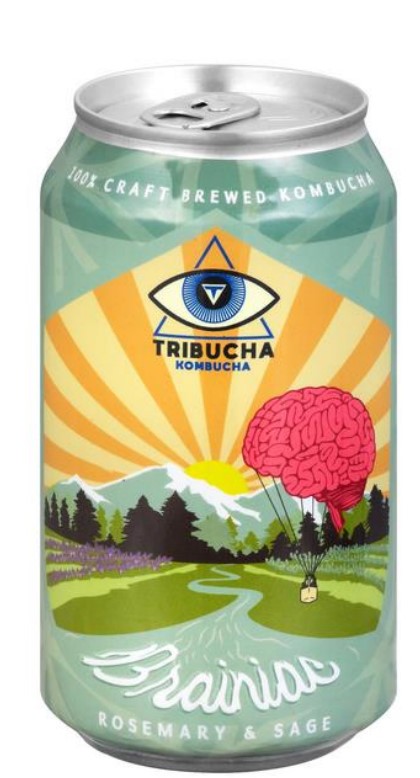Tribucha Kombucha Falsely Sold as Non-Alcoholic, Class Action Alleges
Last Updated on February 9, 2026
Burke et al. v. Tribucha, Inc.
Filed: October 6, 2022 ◆§ 5:22-cv-406
A class action alleges Tribucha Kombucha is deceptively passed off as non-alcoholic, despite having an alcohol content higher than the legal limit for non-alcoholic beverages.
Illinois Consumer Fraud and Deceptive Business Practices Act Florida Deceptive and Unfair Trade Practices Act
North Carolina
A proposed class action alleges Tribucha Kombucha is deceptively passed off as non-alcoholic, despite having an alcohol content higher than the legal limit for non-alcoholic beverages.

According to the 30-page case, Tribucha has violated federal and state law by failing to properly label its kombucha as an alcoholic beverage. The lawsuit contends that although the fermented tea drink contains more than twice the alcohol permitted for non-alcoholic beverages, the product has nevertheless been sold to “unsuspecting children, pregnant women, persons suffering with alcohol dependence issues, and a host of other people for whom alcoholic consumption may pose a grave and immediate safety and/or health risk.”
Per the complaint, a discrete label falsely states that Tribucha Kombucha “contains a trace amount of alcohol.” An investigation by a laboratory accredited by the Alcohol and Tobacco Tax and Trade Bureau (TTB) revealed that the kombucha is over 0.5 percent alcohol by volume, classifying it as an alcoholic beverage under federal law, the lawsuit contends. The TTB also found that fermentation can increase the product’s alcohol content even if it is 0.5 percent alcohol by volume at the time of bottling, the case relays.
The filing argues that Tribucha Kombucha has failed to display the federally mandated health warning statement for alcoholic beverages. Due to the absence of an alcohol warning, three underage plaintiffs were able to purchase Tribucha Kombucha, the complaint asserts.
“Because Tribucha Kombucha does not include any warnings concerning the significant presence of alcohol, consumers, including Plaintiffs, are led to believe that the products are safe to consume when driving a car, operating machinery, and taking with potentially a deadly cocktail of incompatible medications.”
According to the complaint, major retailers in 2010 were forced to discontinue certain kombucha beverages because the products contained alcohol levels “as high as 2.5 percent by volume.” Since then, some retailers decided to pasteurize kombucha to keep the product below 0.5 percent alcohol by volume, the case explains, while the defendant, the suit says, chose a different route.
“Others have chosen to continue making ‘raw’ and unpasteurized kombucha but included the federally mandated warning for alcoholic beverages. Defendant has apparently chosen a third path. Continue brewing raw, unpasteurized kombucha without disclosing that the kombucha is an alcoholic beverage.”
The case contends that the plaintiffs sent Tribucha Kombucha at least four demand letters throughout 2022. The company has neither responded “nor issued any recalls and/or corrective advertising” of the beverages, the filing asserts.
The lawsuit looks to represent anyone in the United States who purchased Tribucha Kombucha within the past four years.
Get class action lawsuit news sent to your inbox – sign up for ClassAction.org’s free weekly newsletter here.
Video Game Addiction Lawsuits
If your child suffers from video game addiction — including Fortnite addiction or Roblox addiction — you may be able to take legal action. Gamers 18 to 22 may also qualify.
Learn more:Video Game Addiction Lawsuit
Depo-Provera Lawsuits
Anyone who received Depo-Provera or Depo-Provera SubQ injections and has been diagnosed with meningioma, a type of brain tumor, may be able to take legal action.
Read more: Depo-Provera Lawsuit
How Do I Join a Class Action Lawsuit?
Did you know there's usually nothing you need to do to join, sign up for, or add your name to new class action lawsuits when they're initially filed?
Read more here: How Do I Join a Class Action Lawsuit?
Stay Current
Sign Up For
Our Newsletter
New cases and investigations, settlement deadlines, and news straight to your inbox.
Before commenting, please review our comment policy.